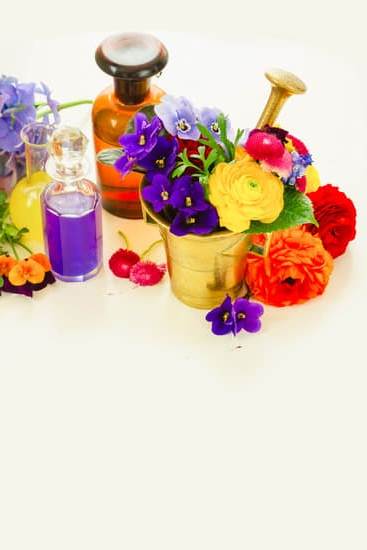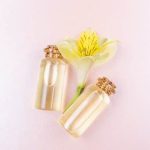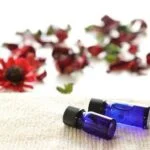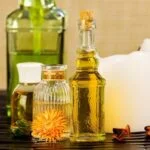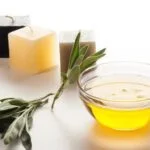Aromatherapy, the practice of using essential oils to enhance physical and psychological well-being, is gaining popularity as a natural remedy for various health concerns. The question “Is aromatherapy a good move?” arises for many individuals seeking alternative approaches to self-care. Understanding the basics of aromatherapy can shed light on its potential benefits and applications in daily life.
Essential oils, extracted from plants, are known for their therapeutic properties and aromatic fragrances. Aromatherapy works by inhaling or applying these potent oils to the skin, where they can be absorbed into the bloodstream and interact with the body’s chemistry. This holistic approach aims to promote relaxation, reduce stress, improve sleep quality, boost mood, and alleviate certain physical ailments.
Research suggests that aromatherapy can have a positive impact on mental health by calming nerves, reducing anxiety, and enhancing cognitive function. Many people find relief from symptoms of depression or insomnia through the use of specific essential oils. Furthermore, aromatherapy may complement traditional therapies for mental health conditions or simply serve as a natural mood booster in everyday life.
The Science Behind Aromatherapy
Aromatherapy is a practice that has been utilized for centuries to promote overall well-being and health. At its core, aromatherapy relies on the use of essential oils extracted from plants to stimulate the senses and influence the body’s physiological and psychological responses. The science behind aromatherapy lies in how these essential oils interact with the body through various pathways, including inhalation, absorption through the skin, and ingestion in some cases.
Inhalation
One of the primary methods of experiencing the benefits of aromatherapy is through inhalation. When essential oils are diffused into the air or inhaled through steam inhalation, they travel through the nasal passages and stimulate olfactory receptors. These receptors then send signals to the brain’s limbic system, which controls emotions, memories, and behaviors. This direct communication between essential oil molecules and the brain is what can trigger mood enhancement or relaxation.
Absorption Through Skin
Another way essential oils work in aromatherapy is by being absorbed through the skin. When diluted with a carrier oil and applied topically during massages or baths, essential oils can penetrate the skin’s layers and enter the bloodstream. From there, they can have localized effects on specific areas where they are applied or systemic effects throughout the body. This method allows for targeted relief from physical ailments like muscle tension or inflammation.
Ingestion (With Caution)
While most aromatherapists advise against ingesting essential oils due to their potent nature and potential side effects, some practitioners believe that certain oils can be consumed in small amounts under professional guidance. Ingesting essential oils bypasses both inhalation and skin absorption methods by directly entering the digestive system.
However, it must be approached with caution as not all essential oils are safe for ingestion due to their high concentration levels. It is crucial to consult a qualified aromatherapist before considering ingesting any essential oil for therapeutic purposes.
Understanding how aromatherapy works in these different pathways sheds light on why it has gained popularity as a complementary therapy for various health issues. By harnessing the power of scent and plant extracts, individuals can potentially experience both mental and physical benefits that contribute to their overall well-being.
So, is aromatherapy a good move? The science behind it suggests that incorporating it into your self-care routine could indeed be a valuable addition for enhancing your health and wellness journey.
Benefits of Aromatherapy for Mental Health
Aromatherapy has been touted as a natural remedy for improving mental health and well-being. The use of essential oils in aromatherapy has gained popularity for its ability to calm the mind, reduce stress, anxiety, and promote relaxation. One of the key benefits of aromatherapy for mental health is its impact on emotions and mood regulation. Certain scents have been shown to have a direct effect on the brain’s limbic system, which is responsible for emotions and memories.
Stress Reduction
One of the primary reasons why people turn to aromatherapy is to alleviate stress. Aromatherapy can help reduce cortisol levels, the body’s stress hormone, leading to a feeling of calm and relaxation. Scents like lavender, chamomile, and rosemary are known for their soothing properties that can help ease tension and promote relaxation. By simply inhaling these essential oils or using them in a diffuser, individuals may experience a significant reduction in stress levels.
Improved Sleep
Quality sleep is essential for overall mental well-being, and aromatherapy can play a role in promoting better sleep patterns. Certain essential oils such as lavender, bergamot, and cedarwood are known for their sedative properties that can help induce sleep and improve sleep quality. Incorporating these oils into a bedtime routine through diffusers or diluted in carrier oils for massage can create a relaxing environment conducive to restful sleep.
Mood Enhancement
Aromatherapy has the potential to uplift mood and enhance emotional well-being. Scents like citrus oils (such as lemon or orange) are commonly used in aromatherapy for their energizing and mood-boosting effects. These uplifting scents can help combat feelings of sadness or low energy levels, providing a natural pick-me-up throughout the day. Incorporating these invigorating scents into your daily routine through inhalation or topical application may positively impact your overall mood.
Aromatherapy for Physical Wellness
Many individuals turn to aromatherapy as a natural remedy to alleviate physical discomfort, such as muscle aches, joint pain, and headaches. The use of essential oils in aromatherapy is believed to aid in relaxing muscles, reducing inflammation, and promoting overall well-being. One popular essential oil used for easing aches and pains is lavender oil, known for its calming properties and ability to relieve tension.
Peppermint oil is another essential oil commonly used in aromatherapy for its cooling effect that can help soothe sore muscles and reduce headaches. Its invigorating scent also provides a refreshing sensation that can uplift the mood while addressing physical discomfort. Eucalyptus oil is another favorite among aromatherapy enthusiasts due to its anti-inflammatory properties which can be beneficial for relieving muscle soreness and respiratory congestion.
Incorporating aromatherapy into your physical wellness routine can be as simple as adding a few drops of your preferred essential oil to a warm bath, diluting it with a carrier oil for massage, or using a diffuser to spread the aroma throughout your living space. Whether you are dealing with post-workout muscle soreness or chronic pain conditions, exploring aromatherapy as a complementary approach to managing physical discomfort is aromatherapy a good move
| Essential Oil | Benefits |
|---|---|
| Lavender Oil | Calming properties, relieves tension |
| Peppermint Oil | Cooling effect, soothes sore muscles and reduces headaches |
| Eucalyptus Oil | Has anti-inflammatory properties beneficial for relieving muscle soreness and respiratory congestion |
Different Types of Essential Oils and Their Uses
Aromatherapy utilizes a variety of essential oils, each with its own unique properties and benefits. One popular essential oil is lavender, known for its calming and relaxation properties. Lavender oil is often used to relieve stress, anxiety, and promote better sleep. Another common essential oil is peppermint, which is known for its cooling effect and ability to alleviate headaches and nausea. Peppermint oil is also believed to increase focus and mental clarity.
Eucalyptus oil is another popular choice in aromatherapy due to its decongestant properties, making it effective in easing respiratory issues such as coughs and congestion. Tea tree oil is well-known for its antiseptic and anti-inflammatory properties, often used to treat skin conditions like acne and fungal infections. Additionally, lemon oil is commonly used for its uplifting and energizing effects, believed to boost mood and improve concentration.
Furthermore, oils like chamomile are valued for their soothing effects on the mind and body, making them beneficial for reducing inflammation or promoting relaxation before bedtime. On the other hand, rosemary essential oil is favored for its stimulating properties that can help improve focus and memory. With a wide range of essential oils available, each with unique benefits, exploring the world of aromatherapy can be a personalized journey tailored to individual needs.
How to Incorporate Aromatherapy Into Your Daily Routine
Aromatherapy can be a wonderful addition to your daily routine, offering numerous benefits for both your physical and mental well-being. One of the simplest ways to incorporate aromatherapy into your day is by using a diffuser.
These devices disperse essential oils into the air, allowing you to enjoy their therapeutic effects throughout your home or workspace. Whether you prefer a calming lavender scent to help you relax before bedtime or an invigorating citrus aroma to boost your energy levels during the day, a diffuser can easily fit into your daily schedule.
Another popular method of using aromatherapy is through topical application. Essential oils can be diluted in a carrier oil and applied directly to the skin, providing targeted relief for aches, pains, or tension.
For example, massaging a few drops of peppermint oil mixed with coconut oil onto sore muscles can help alleviate discomfort and promote relaxation. It’s important to note that some essential oils may cause skin irritation, so it’s always recommended to do a patch test before widespread use.
In addition to diffusers and topical application, incorporating aromatherapy into your daily routine can also involve creating personalized scents for different purposes. For example, you might blend together essential oils like rosemary and lemon for increased focus and concentration while working, or mix ylang-ylang and bergamot for a calming atmosphere during meditation or yoga practices.
Experimenting with various essential oil combinations can help you find what works best for you and tailor your aromatherapy experience to suit your needs and preferences.
| Aromatherapy Method | Benefits |
|---|---|
| Diffuser | Disperses essential oils for overall well-being |
| Topical Application | Provides targeted relief for aches and tension |
| Customized Blends | Allows personalization of scents for specific purposes |
Potential Risks and Precautions of Aromatherapy
Aromatherapy is often praised for its numerous benefits on mental health and physical well-being. However, it is essential to acknowledge that there are potential risks and precautions associated with the practice. While aromatherapy can be a fantastic addition to your wellness routine, understanding these risks is crucial to ensure a safe and enjoyable experience.
To help you navigate the potential pitfalls of aromatherapy, here are some key risks and precautions to keep in mind:
- Skin Irritation: Some essential oils can be irritating to the skin when applied directly or in high concentrations. It is crucial to dilute essential oils with a carrier oil before applying them topically or use them in a diffuser to avoid skin reactions.
- Allergic Reactions: Individuals with sensitive skin or allergies may be more prone to allergic reactions when using certain essential oils. Before trying out a new oil, perform a patch test on a small area of skin to check for any adverse reactions.
- Respiratory Issues: Certain essential oils can trigger respiratory issues in individuals with asthma or other respiratory conditions. It is recommended to consult with a healthcare provider before using aromatherapy if you have any underlying health concerns.
While these risks are important to consider, taking proper precautions can help minimize them and allow you to enjoy the benefits of aromatherapy safely. By being mindful of your body’s response and following guidelines for safe usage, incorporating aromatherapy into your daily routine can be a positive and rewarding experience.
Remember that everyone’s experience with aromatherapy is unique, so it is vital to listen to your body and adjust your usage accordingly. When practiced safely and mindfully, aromatherapy is indeed a good move towards enhancing your overall well-being.
Personal Experiences
Aromatherapy is a practice that has gained popularity in recent years, with many individuals turning to essential oils to improve their overall well-being. Personal experiences of using aromatherapy have been quite positive for many users, showcasing the potential benefits that this holistic approach can offer. Here are some success stories from individuals who have incorporated aromatherapy into their daily routines:
- One user, Sarah, found that diffusing lavender essential oil in her bedroom helped her relax and unwind after a long day at work. She reported feeling more peaceful and experiencing better quality sleep since she started using aromatherapy.
- Tom, another avid user of aromatherapy, shared that applying peppermint essential oil topically helped alleviate his tension headaches. The cooling sensation and soothing scent of peppermint provided him with quick relief whenever he felt a headache coming on.
- For Jessica, incorporating citrus essential oils like orange and lemon into her morning routine boosted her mood and energy levels. The refreshing scents of citrus oils helped kickstart her day on a positive note and lifted her spirits throughout the day.
These success stories highlight how individuals have experienced various benefits from using aromatherapy in their everyday lives. From promoting relaxation and enhancing sleep quality to relieving headaches and boosting energy, aromatherapy has shown promising results for many users. If you are considering incorporating aromatherapy into your routine, these personal experiences serve as testimonies to the potential advantages it can offer when used mindfully and consistently.
Conclusion
In conclusion, the question “Is Aromatherapy a Good Move” is one that many individuals may find themselves pondering. After delving into the science behind aromatherapy, exploring its benefits for mental health and physical wellness, learning about different types of essential oils, understanding how to incorporate it into daily routines, and being aware of potential risks and precautions, it becomes evident that aromatherapy can indeed be a beneficial practice for overall well-being.
Many users have shared their success stories with aromatherapy, citing improvements in mood, reduced stress levels, relief from aches and pains, better sleep quality, and enhanced focus. This positive feedback highlights the potential of aromatherapy as a complementary therapy to support mental and physical health.
Ultimately, whether or not aromatherapy is worth exploring depends on individual preferences and needs. For those seeking natural ways to improve their well-being and enhance their quality of life, incorporating aromatherapy into their daily routines could be a good move.
As with any holistic practice, it is important to approach it with an open mind, do thorough research on essential oils and their properties, consult with healthcare professionals if needed, and listen to your body’s responses to determine what works best for you. So go ahead, give aromatherapy a try and see how it can positively impact your life.
Frequently Asked Questions
What Does Aromatherapy Move Do?
Aromatherapy is believed to promote relaxation, reduce stress, improve mood, and alleviate certain ailments through the use of essential oils. The scent molecules from the oils stimulate areas of the brain that are responsible for emotions and memories.
Why Is Aromatherapy So Popular?
Aromatherapy has gained popularity due to its natural approach to healing and wellness. Many people are attracted to using essential oils as an alternative or complementary therapy to traditional medicine. The pleasant scents and potential health benefits make it appealing.
How Fast Does Aromatherapy Work?
The speed at which aromatherapy works can vary from person to person. Some individuals may experience almost immediate effects upon inhaling or applying essential oils, while others may notice gradual improvements over time with consistent use. Factors such as the type of oil, method of application, and individual chemistry can all influence how quickly aromatherapy takes effect.

Are you looking for a natural way to improve your health and wellbeing?
If so, aromatherapy may be the answer for you.

